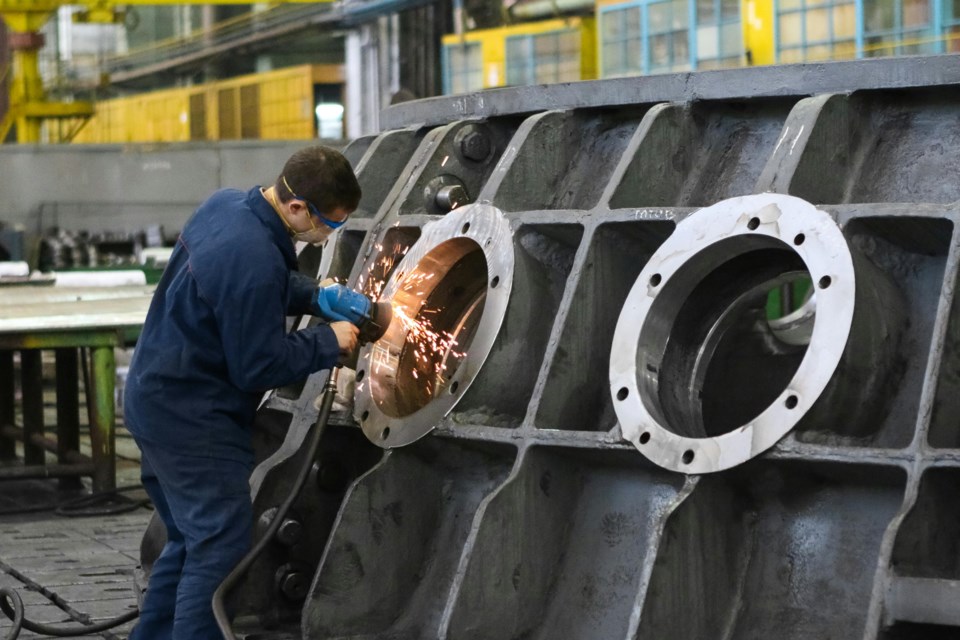Manufacturing in British Columbia is on the edge of a crisis and none of the candidates in B.C.’s provincial election talked about it. Manufacturing is critical to any economy. It has high wages and because it is capital intensive, the investment drives significant spinoff in both jobs and GDP. In B.C., it has over $65 billion in sales and represents more than 50 per cent of our exports. It is also sustainable, as the hard assets involved can last for decades and are difficult to move. This important industry is struggling. The province still has tremendous potential to regain its strength in the manufacturing sector, but we can no longer ignore the negative trends that have been evident for several years.
At the end of the 20th century, manufacturing represented over 9.5 per cent of B.C.’s GDP. By 2023, that had dropped to only 5.7 per cent—its lowest level since 1997. It declined by 4.6 per cent in 2023 alone, ending the post-COVID rebound. This has also meant a decline in manufacturing jobs. The 171,800 jobs in the sector represent the lowest number in a decade.
This decline is not a surprise. It had been signalled by poor investment in the sector for years. This is particularly notable in comparison to the United States. In 2022, U.S. manufacturers invested nearly $50,000 per worker, while in B.C., we invested less than $14,000 per worker. The U.S. is only the most immediate comparison. In the five years ending in 2021, Canada ranked 25th out of 36 OECD countries for growth in business investment, and B.C. is also below the Canadian average.
Declining investment is part of a long-time trend in the province and our productivity has lagged as a result.
On average, every hour worked in a U.S. factory will generate nearly 70 per cent more revenue than an hour worked in a factory in B.C. Do not mistake this as a complaint about wages, manufacturers in B.C. are proud that they pay well above the median wage in our province. The concern is that we cannot be successful or competitive with a high-wage, low-productivity economy.
Addressing that challenge means more investment. Investment in machinery and equipment. Investment in smart manufacturing. Investment in the development of new products where our smaller, niche manufacturing has a competitive edge. Investment means more jobs and a greater tax stream. In an advanced economy like that of British Columbia, if you do not invest, you will not be successful. Because we have not supported investment, we are now falling behind and regaining ground on our competitors will not be easy.
When asked why they cannot afford the investment required to compete, manufacturers around British Columbia have been clear about the challenges. High costs, a scarcity of labour and troubles in the resource sector have all contributed to the current situation. The significant increase in non-productive costs is a particular concern. New holidays, the employer health tax, a rising carbon tax, an increase in land costs and land taxes, and an opaque, costly and time-consuming regulatory regime all contribute to the challenge. For manufacturers, it is not one bad idea, it is the volume and layers of costs that have built up. The phrase we hear is “death by a thousand cuts.”
Yet there is still tremendous potential for the industry. Our strong education system, favourable location for access to world markets and abundant natural resources are all strengths we can build on. Our manufacturing sector has had to be nimble, creative and innovative to compete. British Columbians would be astonished at the kinds of things we make and export to the world.
Manufacturers want to stay in British Columbia. They want to work with governments to solve the challenges they face. But candidates, and whichever government gets elected, need to acknowledge the challenge. Governments have made piecemeal efforts over the years, but it has not had an impact. B.C. needs a comprehensive strategy to grow our manufacturing sector and avert the crisis on our doorstep.
Andrew Wynn-Williams is the divisional vice-president for B.C. of Canadian Manufacturers and Exporters (CME), which recently released a report titled Manufacturing B.C.’s Future that details challenges and solutions for the industry.




